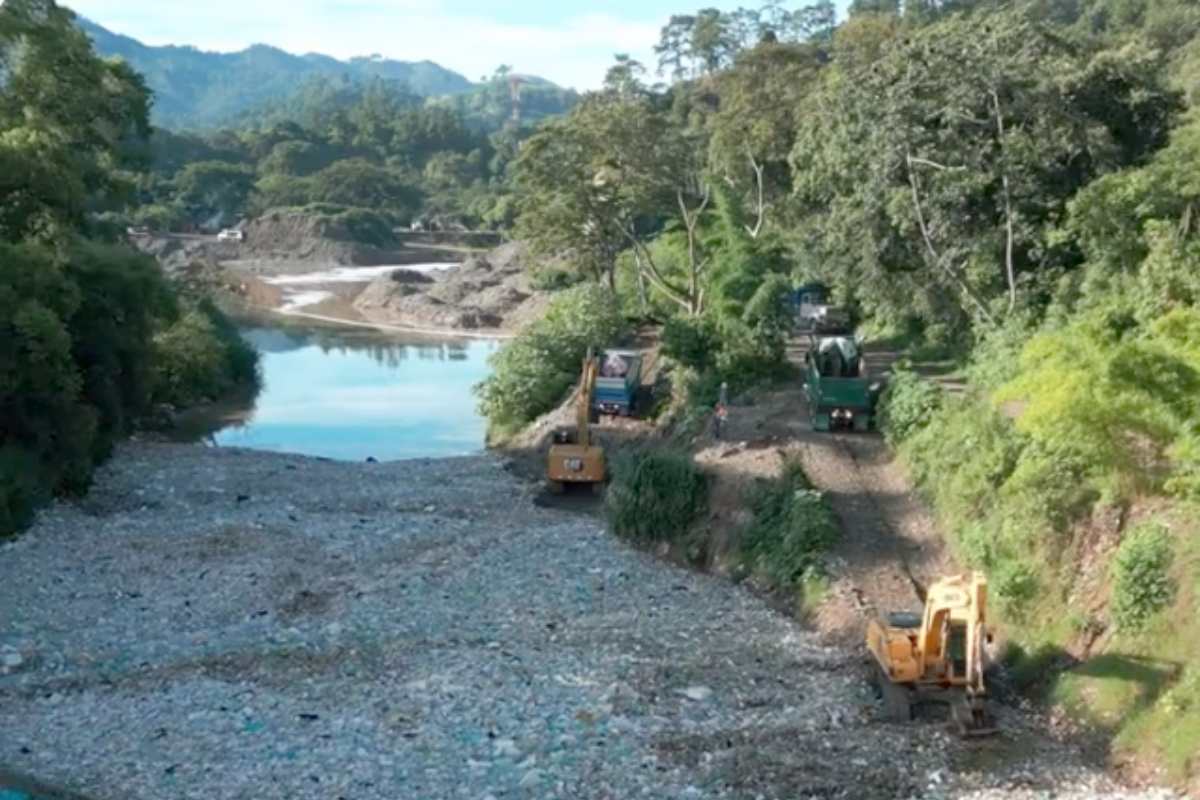The situation in Rio Las Vacas in Guatemala is devastating due to an urban landfill located upstream of the river which causes tons of plastic to flow into the Caribbean Sea

@The Ocean Cleanup/X
Guatemala is confronting an environmental challenge of staggering proportions, epitomized by the distressing state of the Rio Las Vacas. This river is notorious for its extremely high level of pollution. Approximately 60% of the wastewater and waste generated by Guatemala City flow into this river.
The primary source of this pollution is an urban landfill located upstream, serving as a collection basin for a wide range of waste. This relentless stream of waste has devastating effects on the river and marine ecosystems, as Rio Las Vacas is one of the tributaries of the Rio Motagua, Guatemala’s largest river, which directly flows into the Caribbean Sea.
The problem remains unchecked
Despite the efforts of ecological organizations to combat pollution and prevent waste from reaching the sea, the sheer volume of trash continues to overwhelm every containment attempt. According to estimates from the Ocean Cleanup organization, about 2% of all plastic that ends up in the world’s oceans originates from the Rio Motagua, due to pollution from Guatemala.
Boyan Slat, CEO of Ocean Cleanup, has highlighted the severity of the issue, stating that up to 22,000 ton of plastic are dumped annually into the Rio Motagua basin. This quantity represents about 2% of global plastic emissions into the oceans, a figure that becomes alarming when compared to other sources of global pollution.
Slat illuminated the gravity of the situation, emphasizing that the plastic emissions caused by the Rio Motagua even surpass the global CO2 emissions generated by all the airplanes in the world.
These figures underscore the urgency of adopting concrete and coordinated measures to address river and sea pollution. Guatemala and the international community must work together to find effective solutions that reduce the devastating impact of plastic on the marine environment and protect the health of coastal and oceanic ecosystems.
INTERCEPTOR 006: BIGGEST CATCH SO FAR
On Monday, July 31, we hit a new record in the Rio Las Vacas, Guatemala: 85 truckloads of trash removed and prevented from reaching the Caribbean Sea – all in a single day. pic.twitter.com/SO9PyzEDKg
— The Ocean Cleanup (@TheOceanCleanup) August 2, 2023
